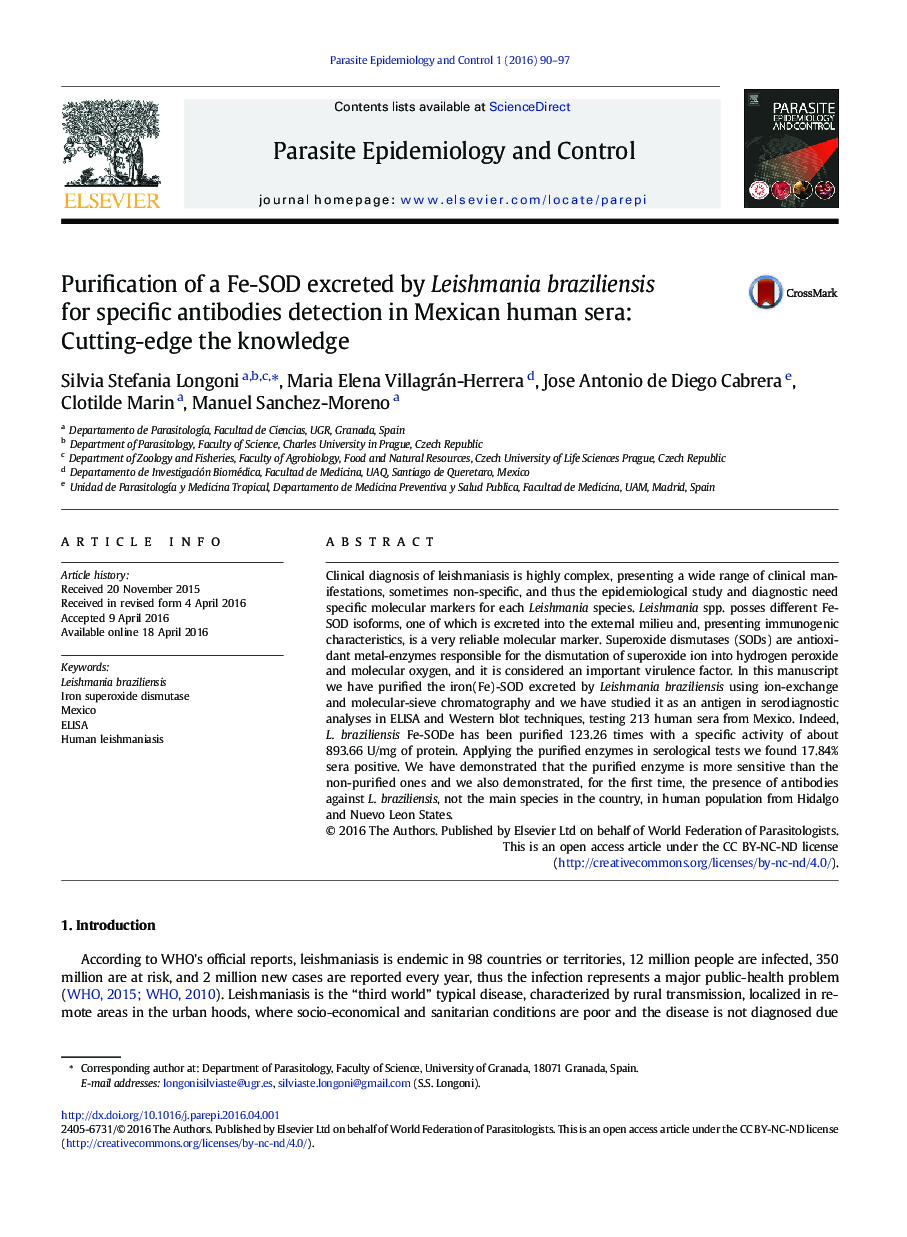| Article ID | Journal | Published Year | Pages | File Type |
|---|---|---|---|---|
| 2473673 | Parasite Epidemiology and Control | 2016 | 8 Pages |
Clinical diagnosis of leishmaniasis is highly complex, presenting a wide range of clinical manifestations, sometimes non-specific, and thus the epidemiological study and diagnostic need specific molecular markers for each Leishmania species. Leishmania spp. posses different Fe-SOD isoforms, one of which is excreted into the external milieu and, presenting immunogenic characteristics, is a very reliable molecular marker. Superoxide dismutases (SODs) are antioxidant metal-enzymes responsible for the dismutation of superoxide ion into hydrogen peroxide and molecular oxygen, and it is considered an important virulence factor. In this manuscript we have purified the iron(Fe)-SOD excreted by Leishmania braziliensis using ion-exchange and molecular-sieve chromatography and we have studied it as an antigen in serodiagnostic analyses in ELISA and Western blot techniques, testing 213 human sera from Mexico. Indeed, L. braziliensis Fe-SODe has been purified 123.26 times with a specific activity of about 893.66 U/mg of protein. Applying the purified enzymes in serological tests we found 17.84% sera positive. We have demonstrated that the purified enzyme is more sensitive than the non-purified ones and we also demonstrated, for the first time, the presence of antibodies against L. braziliensis, not the main species in the country, in human population from Hidalgo and Nuevo Leon States.
Graphical abstractFigure optionsDownload full-size imageDownload as PowerPoint slide
